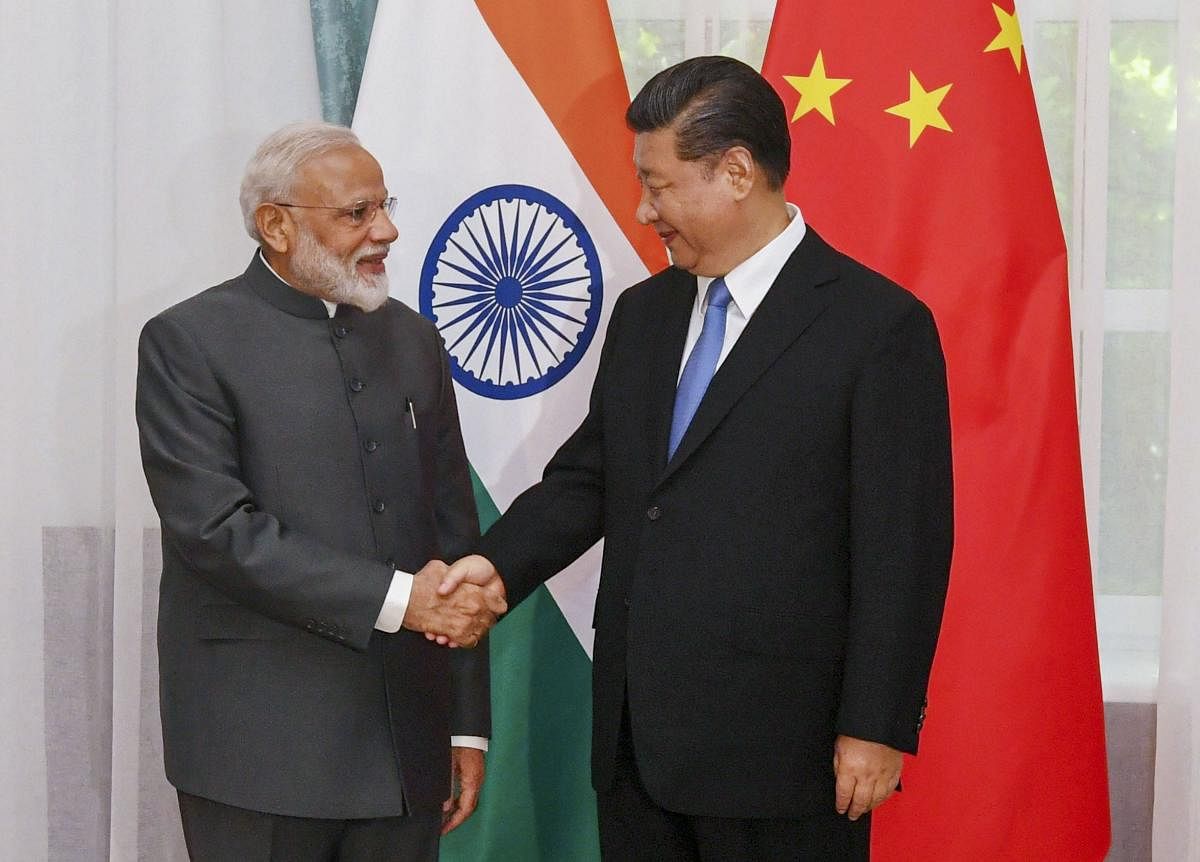
By invoking United Nations Security Council resolutions on Kashmir, China is treading dangerously in not only its bilateral relations with India but also on a host of issues such as Tibet, Xinjiang, Hong Kong, South China Sea and others. It appears that saner voices are getting drowned in Beijing.
Soon after the Indian Parliament revoked the special status of Jammu & Kashmir under Article 370 and carved the state into the Union Territories of Jammu & Kashmir and Ladakh, China’s foreign ministry spokeswoman made a caustic comment on the reorganisation. Meeting Pakistan Foreign Minister Shah Mahmood Qureshi, who rushed to Beijing after the development in India, China’s Foreign Minister Wang Yi said on August 9 that “no unilateral actions” should be taken. Wang further stated that the Kashmir issue is “left over from colonial history” and should be resolved through UN resolutions.
Wang also pointedly stated that “China and Pakistan are all-weather strategic partners and have always understood and supported each other on issues concerning core interests, which is also a good tradition that both countries should cherish…China will continue to firmly support Pakistan in safeguarding its legitimate rights and uphold fairness for Pakistan in international affairs.”
While China siding with its “all-weather” friend Pakistan was predictable in its posturing on South Asian affairs, what has come as a surprise is China’s one-sided but double-edged comments on Kashmir issue.
Firstly, when China reorganised its provincial borders in 1965, including Tibet, no international protests or comments were permitted by the then Tibetan government. Tibet, which included Amdo, Kham and Utsang, was divided or amalgamated into neighbouring provinces. A Tibet Autonomous Region was formed out of traditional Utsang, while Amdo was made a separate province of Qinghai and the restive Kham areas were distributed among Sichuan and Yunnan Provinces. China thus divided Tibet, its culture, population, economy, resources through administrative fiat while allowing no international probing or criticism. Tibet is contiguous to Ladakh, then and now. In this context, Beijing’s response on Ladakh being declared a Union Territory, along with Jammu & Kashmir, is surprising, to say the least.
Secondly, while China is busy warning the United Kingdom and the United States not to “interfere” in its internal matters concerning the massive popular revolt in the former British colony of Hong Kong, it surprisingly began voicing concerns on issues “left over from colonial history” in the case of Kashmir. Beijing also invoked United Nations resolutions, conveniently forgetting that those were contingent on the condition of withdrawal of invading Pakistani troops in 1947-48. Prior to 1971, and the Nixon-Kissinger opening to China, Beijing used to denounce all the UN resolutions!
Thirdly, the Indian foreign ministry spokesman’s response to Beijing’s observations that New Delhi “does not comment on the internal affairs of other countries and expects other countries to do likewise” has not gone down well in Beijing, as its response after Pakistan foreign minister’s visit indicates. The mild reminder that the Indian side thus conveyed to China appeared not to have had any impact. While China may be out to please Pakistan at the moment, Beijing’s stance opens a new chapter in bilateral relations.
Fourthly, when over 22 western countries criticised China’s handling of the situation in Xinjiang – by incarcerating over a million Uighurs, as the UN human rights body noted – Beijing mobilised over 50 countries, most of which were funded through the Belt and Road Initiative projects, to defend its actions in Xinjiang. Many a time, extensive restrictions are imposed on internet connectivity, the visit of media personnel and even on prayers at mosques in the restive region of Xinjiang.
Fifthly, the Chinese foreign ministry spokeswoman’s position on August 7 that the South Asian countries “should refrain from taking actions that will unilaterally change the status quo and escalate tensions” appears strange when juxtaposed against China’s stance on the South China Sea dispute. China argues that the South China Sea has belonged to it from historical (colonial?) times, although it has provided no legal evidence so far for its claims. On the other hand, Beijing had unilaterally occupied the disputed waters and built artificial reefs that the Permanent Court of Justice at The Hague declared illegal. More significantly, China changed the status quo in the South China Sea by deploying HQ-9 surface-to-air missiles and J-10 fighter aircraft on four reefs, in addition to deploying naval ships to the region.
Sixthly, Beijing refrained from mentioning even a word about cross-border terrorism exported by Pakistan into Kashmir as a part of its “bleeding India by a thousand cuts” policy since the late 1980s. While the international community has been critical of Pakistan as the epicentre of global terrorism, Beijing appears willing to shield Islamabad on this issue as long as Pakistan does not export terrorism to Xinjiang. Beijing’s myopic policy and selective approach in this regard is dangerous for the stability of the region.
(The writer is Professor in Chinese Studies at Jawaharlal Nehru University, New Delhi)
Deccan Herald is on WhatsApp Channels| Join now for Breaking News & Editor's Picks